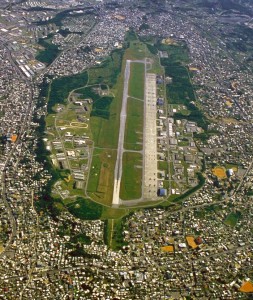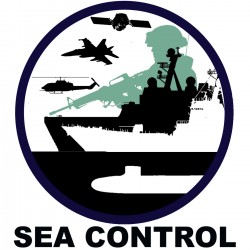No Rest for the Wary

While many look to the year’s end as a time of respite, Japanese Prime Minister Shinzo Abe may have looked to the end of this year as a time to maneuver. On December 26th, Abe visited the Yasukuni Shinto shrine, honoring the spirits of 2.5 million Japanese war dead, including over a dozen class-A war criminals. The Economist’s Banyan blog details the sharply negative regional reaction (notably from China, South Korea, and somewhat unprecedentedly, the United States), and also points to the speculation that this visit not coincidentally occurred on the same day as the announcement that Okinawa’s governor had tentatively agreed to an internal relocation of the USMC Air Station (MCAS) Futenma – a long-sought U.S. goal.
So who are the winners and losers of these moves?
Winners:
Shinzo Abe: In buying bilateral political capital with the U.S. through the Futenma deal, Abe was able to visit the Yasukuni shrine to shore up support among his conservative and far-right supporter base. Although he still provoked a public rebuke from the U.S., it is unlikely to cause any lasting damage to the relationship. The same cannot be said for those with the PRC and ROK. The moves to watch are whether Abe tries to mend these relationships, or continues to revisit the shrine on an annual basis. Although there are indications Abe is attempting to “normalize” the visits as akin to a trip to Arlington National Cemetery by a U.S. president, without a (highly unlikely) large-scale war apology PR effort by the Japanese government such visits will always send the wrong signal regionally.
China: Roughly a month ago China committed the unforced error of including Socotra Island in its ADIZ declaration. Since the “island” (really a submerged rock) is disputed with South Korea, the move thereby nipped the burgeoning PRC-ROK ties in the bud and caused South Korea to make common cause with Japan. With yesterday’s moves, Japan has given China the diplomatic advantage by displacing it as the more worrisome neighbor.
Losers:
Regional Cooperation: As my colleague Kyle Mizokami says, Abe is now “radioactive.” Even before the shrine visit, the South Sudan ammo cooperation fiasco highlighted the difficulty of boosting the Japanese-ROK ties. But whether Abe has killed all hopes of progress for the duration of his time in office is largely contingent on his moves in the coming year(s) – whether he makes sincere efforts at damage control or instead unapologetically continues to visit the shrine. The smart money is on the latter, but the former is not impossible.
United States: While the MCAS Futenma deal is a nominal victory, forestalling the need to relocate the Marines to another Asian facility, the setback to Japanese-ROK ties outweighs the win. Much of the U.S. Asia-Pacific strategy relies on leveraging its key regional allies, and there is little that would shore up U.S. grand strategy more than robust cooperation between Japan and South Korea. While greater ties can appear quixotic at the best of times, Abe’s visit has ensured that the most wonderful time of the year this is not.


 Dear CIMSEC Readers,
Dear CIMSEC Readers,

 Matt Hipple is joined by Zack Elkaim and James Bridger to talk about rebellions in Africa: the Central African Republic, Mali, and Nigeria, as well as the future prospects for Somalia. Today’s podcast is one of our best, and we highly encourage you to give it a listen. Enjoy our latest podcast,
Matt Hipple is joined by Zack Elkaim and James Bridger to talk about rebellions in Africa: the Central African Republic, Mali, and Nigeria, as well as the future prospects for Somalia. Today’s podcast is one of our best, and we highly encourage you to give it a listen. Enjoy our latest podcast,